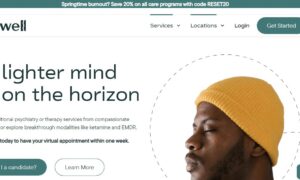The last few years have been a trying time for everyone. People have had to deal with loss, grief, financial insecurity, job uncertainty, isolation, and a constant sense of doom. All of this is bound to take a toll on mental health and it certainly has. The pandemic has changed the way we approach mental health these days. If there’s a silver lining, it is the rise of online free therapy.
During the pandemic, many people were forced to take a break from their fast-paced life and focus on their well-being. Amidst all of this, online therapy has gained significant popularity. While eTherapy has been a thing for a while now, the pandemic forced it to the forefront. Social distancing and quarantine norms meant that traditional face-to-face therapy wasn’t an option for many patients. Online therapy emerged as an attractive and convenient alternative.
But is online therapy effective? Can it be a good replacement for traditional therapy? Let’s explore!
Appealing to the Younger Audience
Young people today are very comfortable with texting and long online conversations. Most of them have meaningful relationships with people from different corners of the world. They are often more comfortable communicating online and sharing their inner thoughts via text messages, which makes them ideal candidates for online therapy.
Young individuals struggling with mental health issues like depression, anxiety, trauma, or panic attacks can reach out to a certified therapist and communicate through their preferred medium. This approach means that more and more young individuals are willingly accessing mental health services today than ever.
That alone makes eTherapy very effective. Millions of people are actively reaching out to get help and have a positive view of therapy. They are also convincing their family members to give it a try, which brings the older generations on board as well.
Easier Rapport
Therapy can be an uncomfortable process for many patients. Few people want to deal with an additional commute and long waits in the reception rooms. When the therapist and the patient are both in comfortable environments like their bedrooms or home offices, the conversation flows easily. The patient is relaxed, surrounded by a familiar environment, and enjoying complete privacy.
If the rapport between a counselor and patient is smoother, therapy is more likely to be successful and effective. This is particularly critical for patients suffering from anxiety. An anxiety counselor can assist you even if you don’t leave your home. There is no need to psych yourself up for a trip to the therapist’s office.
Studies conducted in different parts of the world have found very little difference between communications carried out face-to-face and over an online platform. In March 2020, a study published in the Journal of Affective Disorders found that therapy conducted over the phone or the internet was a little different from face-to-face sessions. The only difference they found was that online sessions were generally shorter.
More Sessions
Online therapy makes it easier for more people to get access to therapy and schedule it at a comfortable time. Psychologists have more time on their hands and can handle more clients. Patients can reach out while they are driving around, on their lunch break, or traveling. There’s no need to set aside some time for therapy.
This has made it easier for busy working individuals to get access to therapy. As online sessions are generally shorter, they can easily fit into a busy person’s schedule. More sessions and better accessibility also make online therapy an effective alternative to traditional mediums.
Even individual patients can attend more sessions and go through therapy faster. Attending sessions regularly becomes a habit and habits are beneficial for people struggling with mental health conditions like anxiety or panic. The routine will become comfortable and help you walk a healthier path.
Easier to Open Up
Studies have shown that the privacy and relative anonymity of online therapy makes it easier for patients to open up about more sensitive topics. Teens struggling with bullying or sexual identity are more comfortable speaking with an online therapist than a traditional counselor. According to surveys conducted in this demographic, teens are more likely to approach an online therapist for private concerns.
A patient’s willingness to approach a therapist and their comfort level during sessions plays a big role in its effectiveness. In these cases, online therapy often has a lower drop-out rate than traditional therapy.
The Drawbacks
No system is fool-proof. While online therapy is highly effective, it may not be for everyone. That’s why it is a good idea to try some free therapy before committing to it. You may not be able to adjust to this form of communication. You may want more face-to-face interaction with your therapist. There are many reasons why online therapy doesn’t work out for some people.
Fortunately, most online platforms provide free therapy days for new users. You can experience what online therapy is like before you take the leap.



































